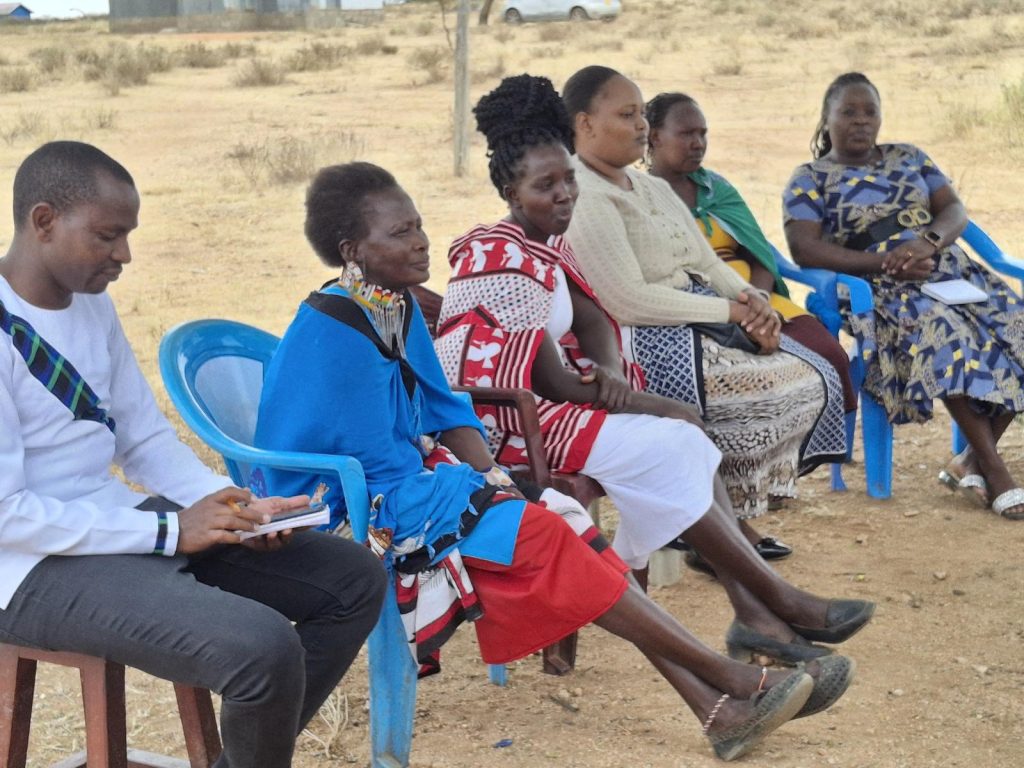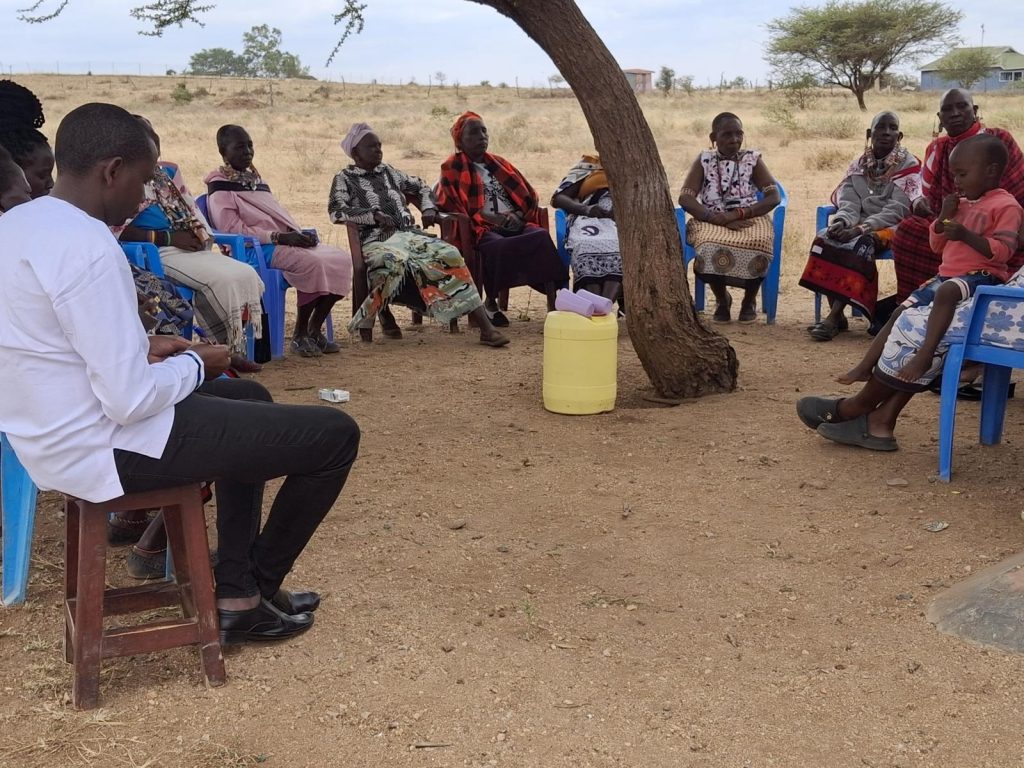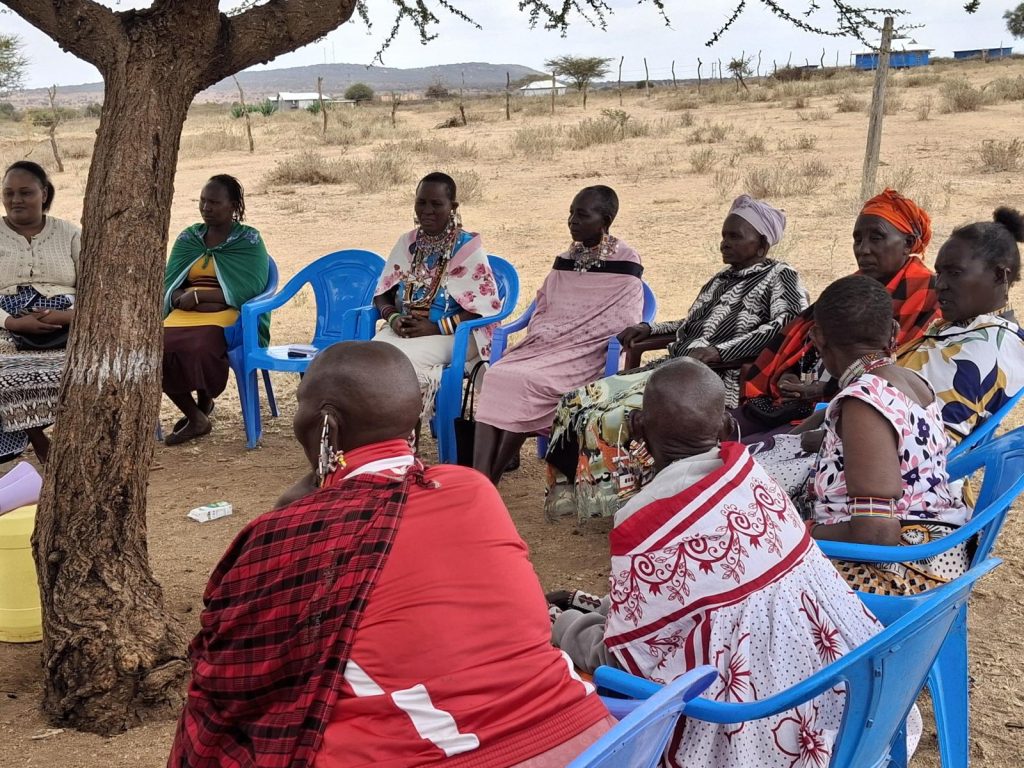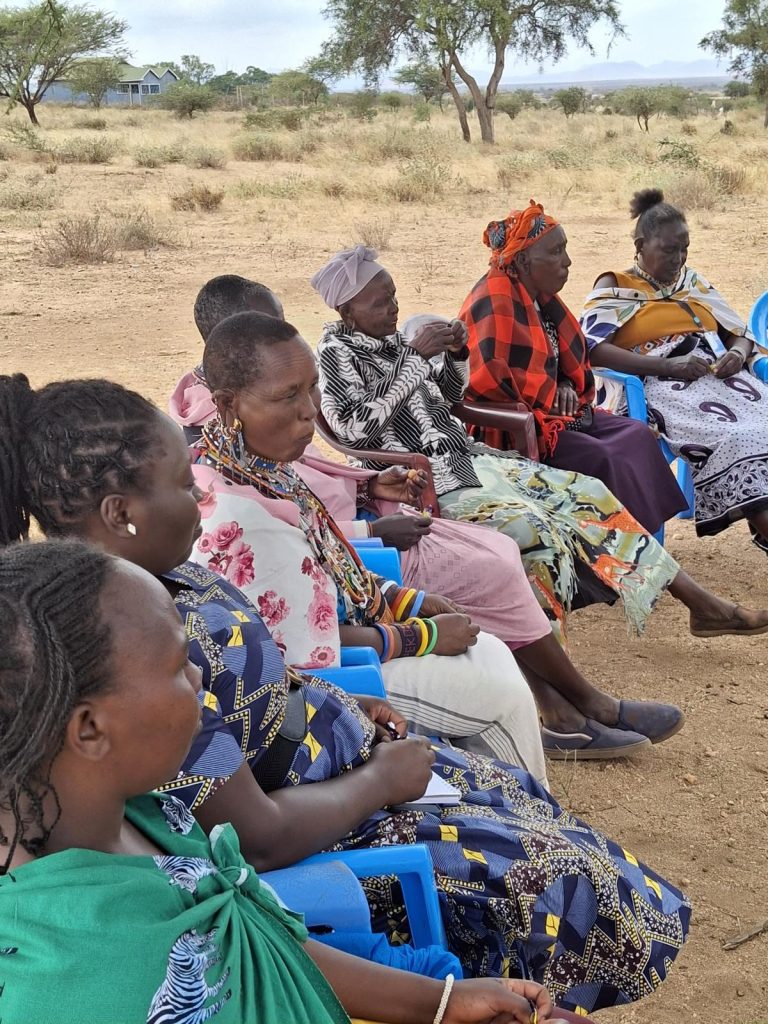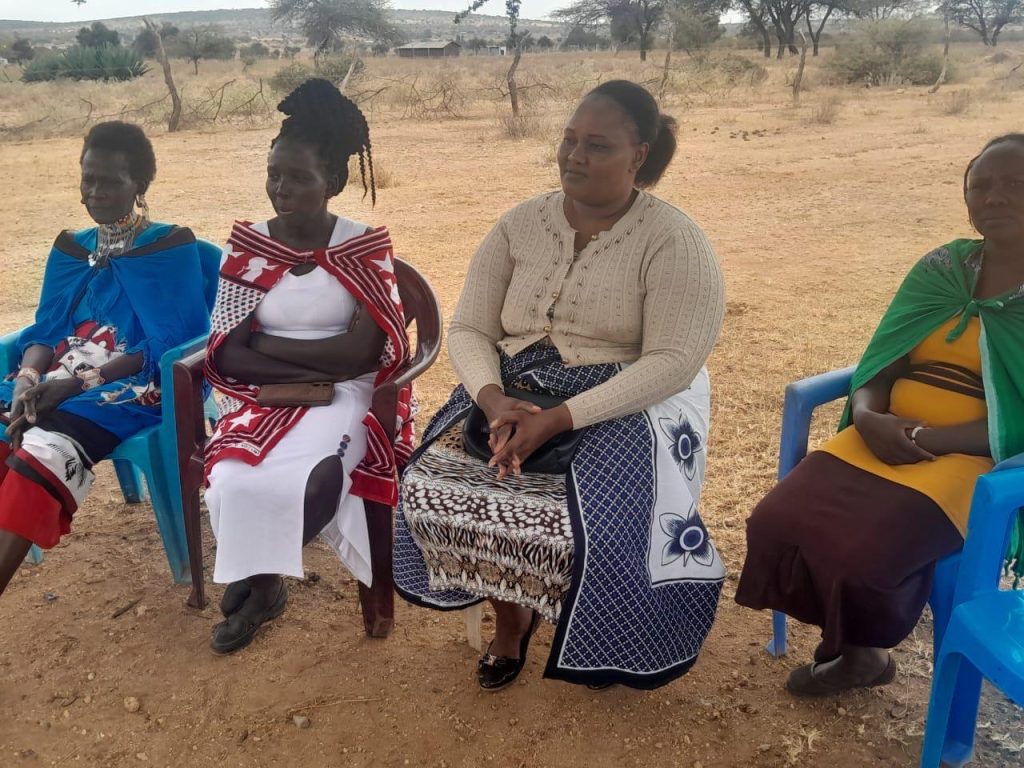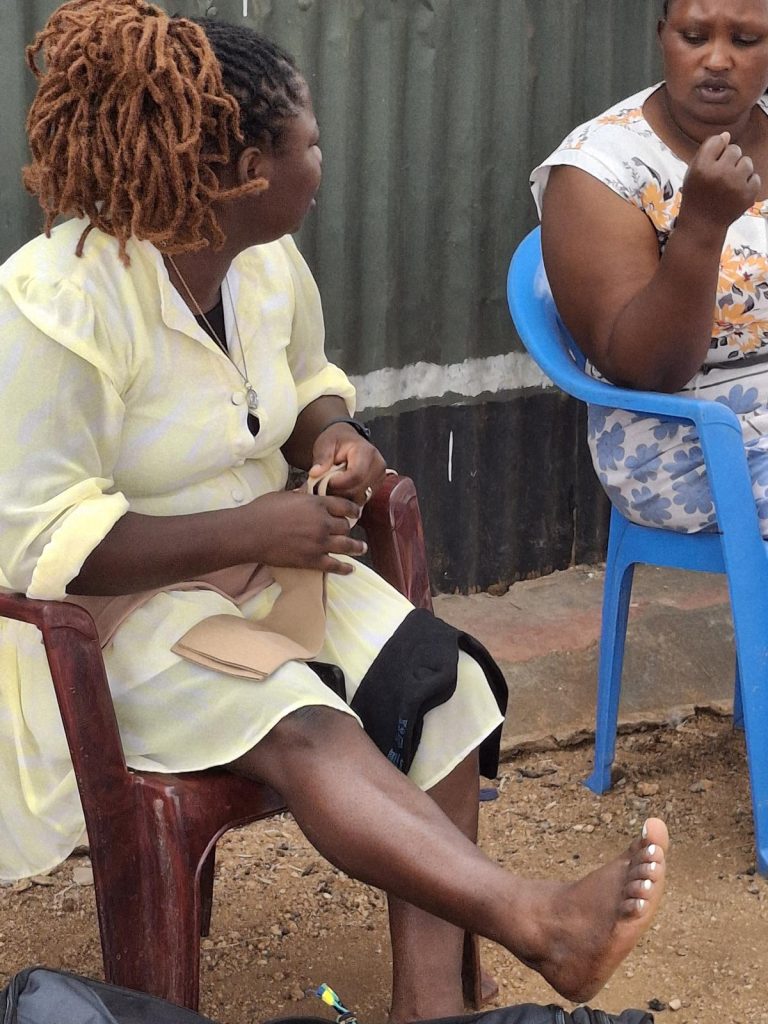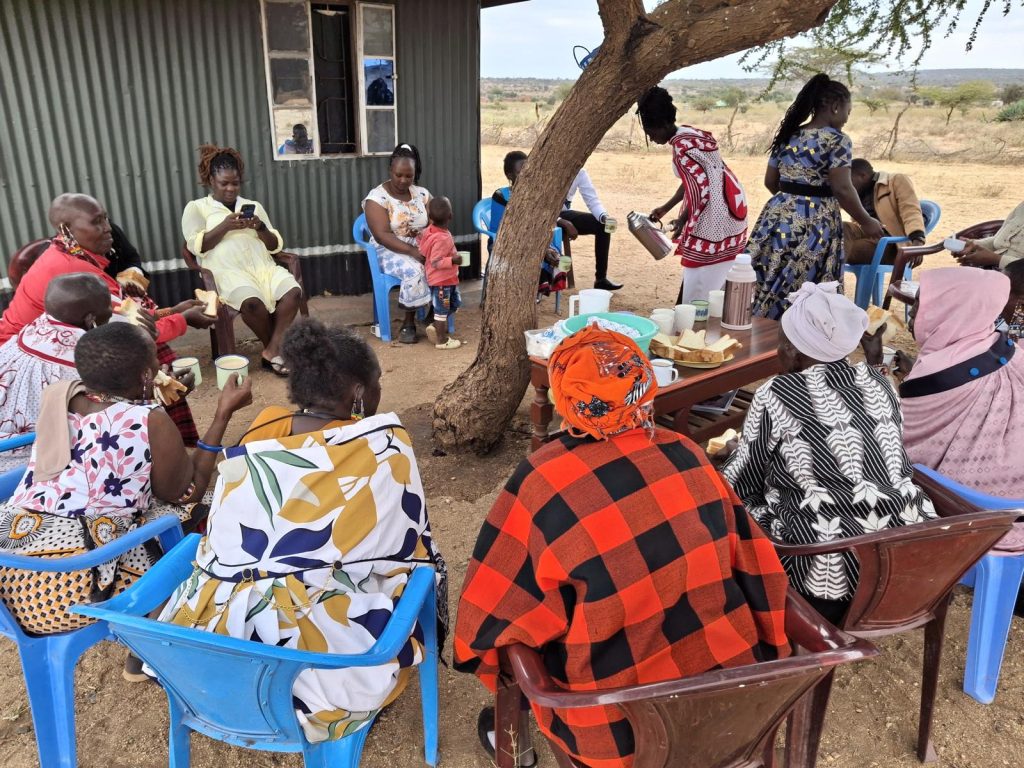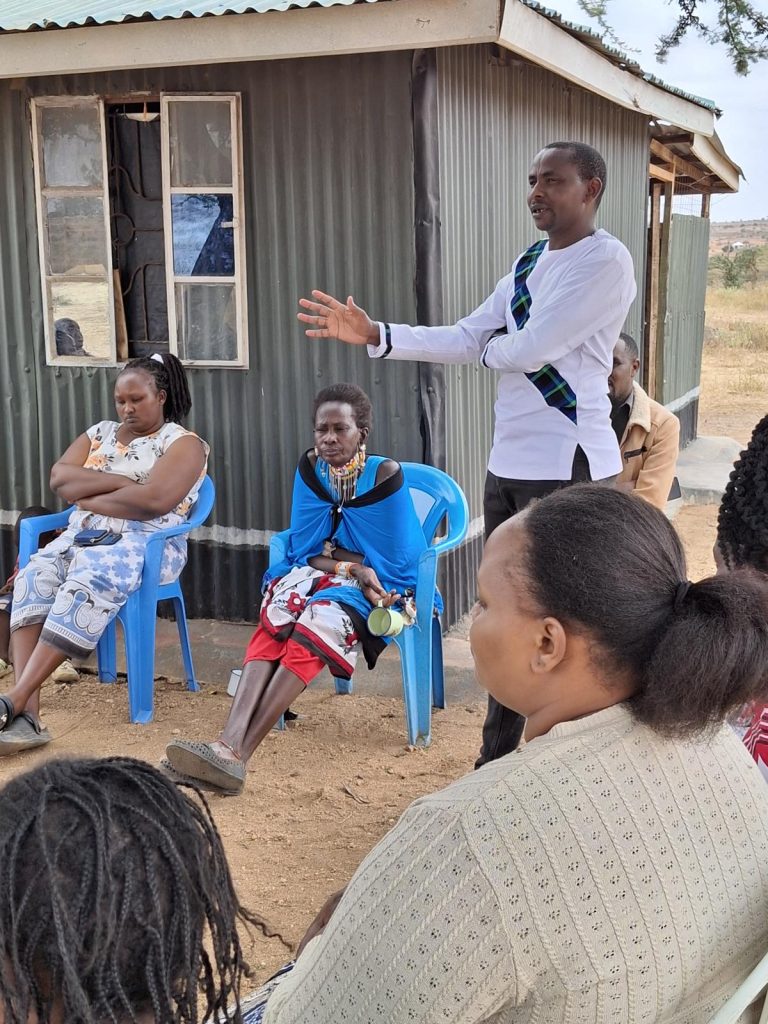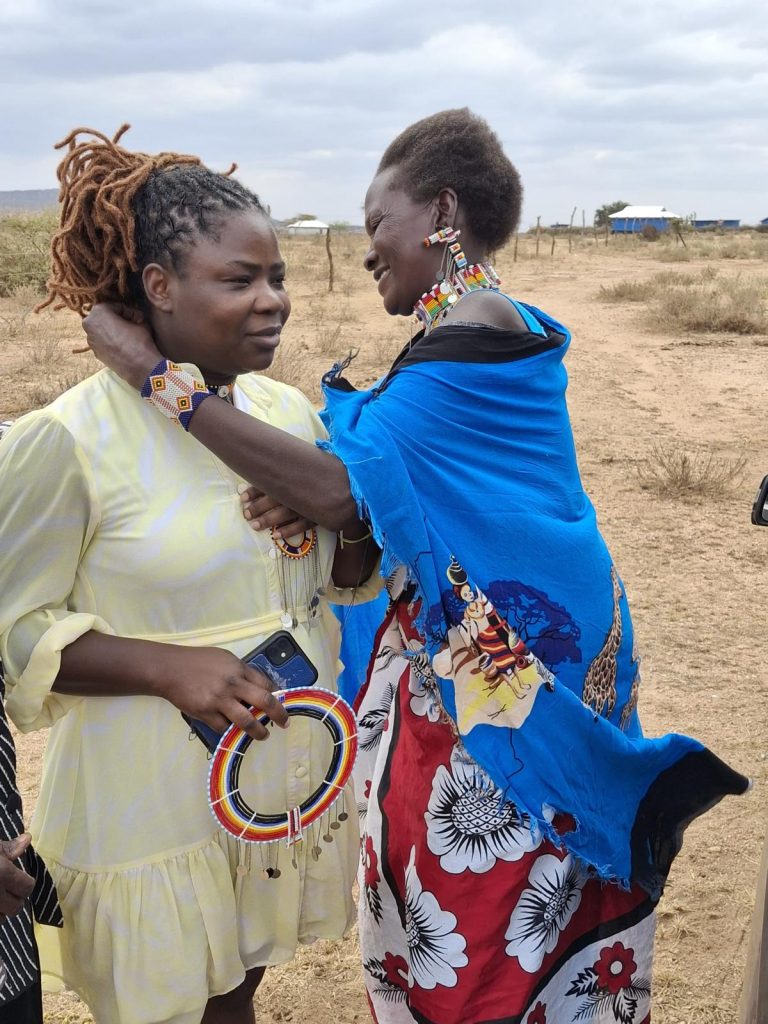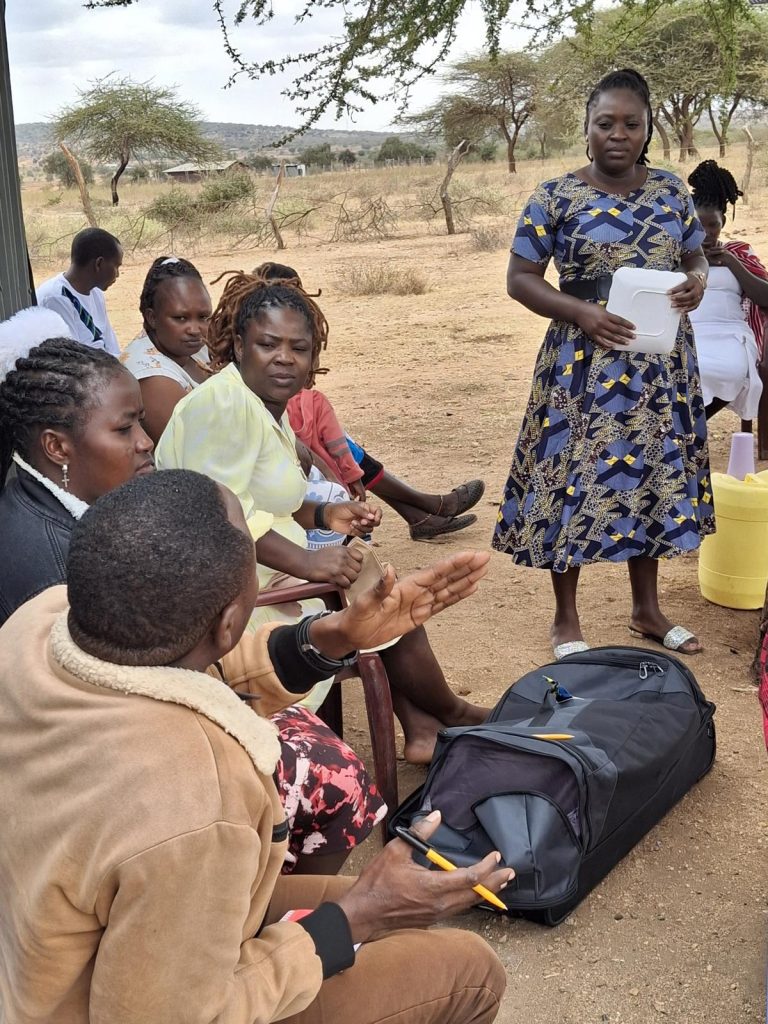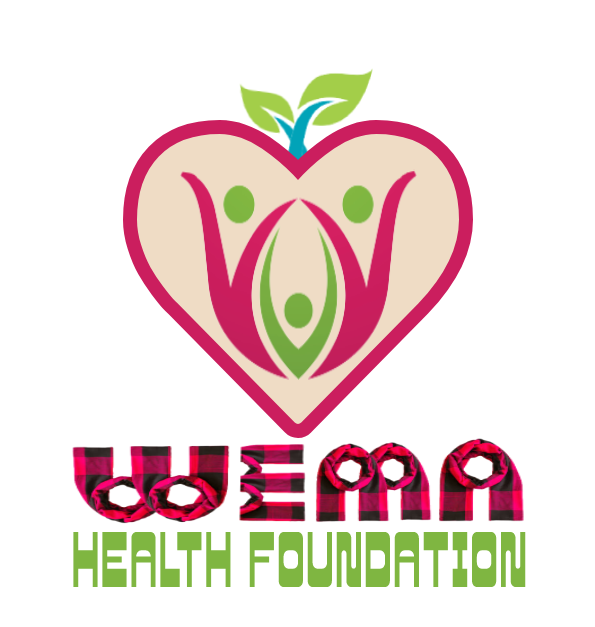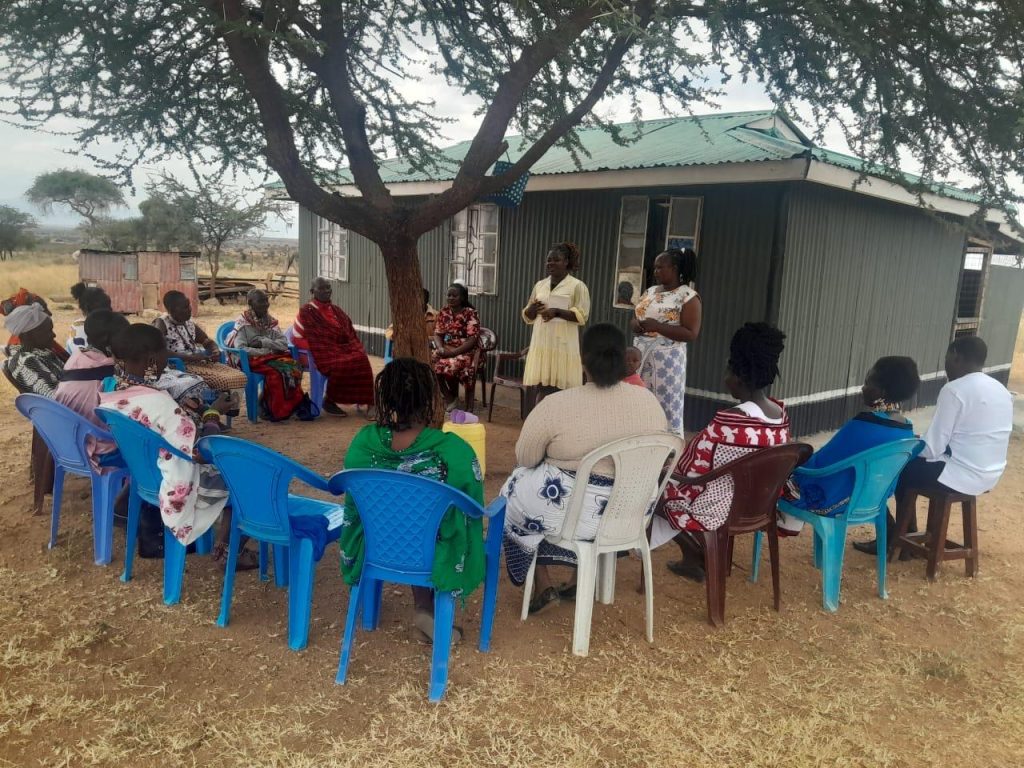
On July 15, 2025, WEMA Health Foundation, led by its founder Leah Wandera, convened a follow-up meeting with Traditional Birth Companions (TBCs), hospitals, and health stakeholders in Imbirikani. The purpose was to review progress since the December 2024 consultative meeting and assess the state of maternal health, physical therapy services, and midwifery support in rural areas.
Positive Developments
The meeting highlighted several encouraging steps that are improving maternal care in the community. Supplies issued last December—including stockings, inflammation ointment, wound dressers, lubricants, and back-pain gadgets—were reported to have made a significant difference for patients struggling with various health conditions.
Stakeholder support has also been critical. Big Life Foundation donated a vehicle to help midwives transport expectant mothers to hospitals during delivery, easing one of the biggest barriers to safe childbirth. Some hospitals have started allowing midwives to stay with mothers through delivery, while others are slowly recognizing the role of midwifery services in maternal care.
Dandelion Health Centre has been at the forefront of supporting midwives by providing transport, meals, and stipends, while Imbirikani Level 4 Hospital is offering food and sleeping space for midwives accompanying mothers. These initiatives are important steps toward building a more collaborative and supportive environment for maternal health.
Persistent Challenges
Despite these gains, several challenges continue to undermine maternal health delivery in Imbirikani. Women and midwives in areas such as Kalesirua, Inkoisuk, Enkajinaibor, Oiti, Ilchalai, Namelok, Isinet, and Noosilale still walk over 10 kilometers to access health facilities, or resort to costly and unsafe motorbike rides at night.
Midwives face a shortage of essential protective gear and delivery tools, forcing some to improvise in risky ways during emergencies. Limited support from the Ministry of Health has left gaps in training, stipends, and provision of physical therapy services. In addition, high delivery costs—Ksh 5,000 for normal births and Ksh 30,000 for cesarean sections—have led to cases where mothers, particularly teenage mothers, are detained in hospitals for failing to clear bills, despite directives that maternal services should be free.
Way Forward
To address these issues, participants recommended several actions:
- Establishing a central location where midwives can access physical therapy instruments and delivery tools.
- Forming self-led midwife support groups to strengthen empowerment.
- Organizing regular training programs and partnering with the Ministry of Health for sustainable capacity-building.
- Enforcing accountability in hospitals to eliminate unauthorized charges.
- Expanding the Dandelion support model to other regions.
- Building more partnerships to support transportation and nutrition for mothers and midwives.
Conclusion
The follow-up meeting reaffirmed that while progress has been made, more work is needed to ensure safe, accessible, and dignified maternal health care in Imbirikani. Through continued collaboration between midwives, hospitals, stakeholders, and partners, WEMA Health Foundation remains committed to bridging these gaps and advocating for stronger maternal health systems in rural Kenya.
